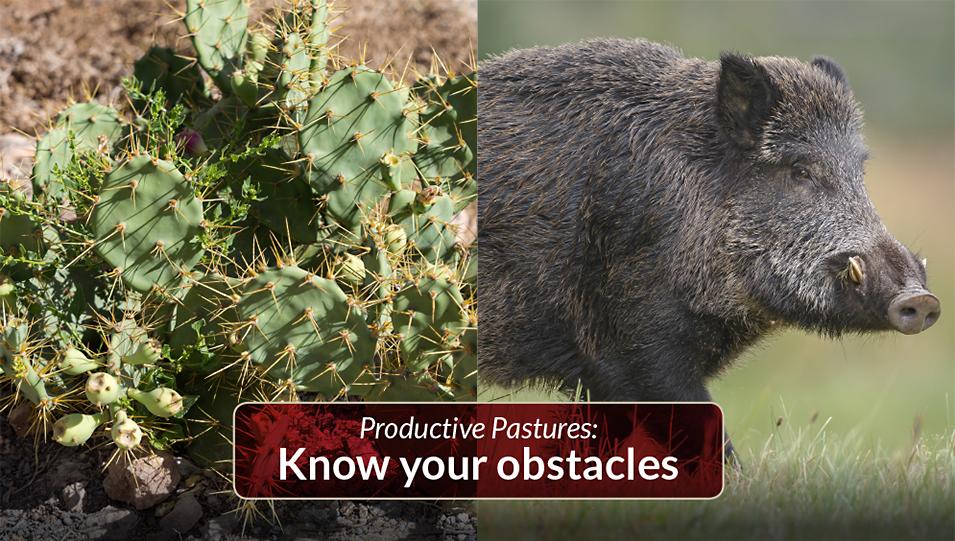
A healthy, vigorous pasture can improve livestock gains and reduce feed costs. But growing pasture in the South and Southeast brings special challenges because growers must consider forage grass varieties, soil type, soil pH, fertility, weed and pest control, and water availability.
Today, we’ll talk about pests, both of the green and other varieties.
Control Weeds and Pests
Assessing the landscape and potential weed problem is a crucial step in establishing new pasture. Dr. Ann Blount, forage specialist at the University of Florida, advises that if your pasture has Bermudagrass or prickly pear cactus, for example, you should control those weeds with herbicide first. Otherwise, tilling could just spread the problem. Blackberry brambles, cogongrass and other weeds that spread by rhizomes can be especially problematic if cut up live while tilling. It’s best to control as many weeds as possible before putting any seed in the ground.
Toxic Plants
In Florida alone, more than 15 different pasture weed species are toxic to cattle. Chronic toxicity can slow gains, and acute toxicity can kill animals. Young stock and cattle on overgrazed pasture are especially vulnerable. Pasture coming out of woodland will tend to have more toxic plants.
A list of Florida plants poisonous to beef cattle includes weeds like bracken fern, sicklepod, lilies, iris, pigweed, black nightshade, castor bean, cherry trees and other weeds many growers might not realize are toxic.
Wildlife Damage
People often don’t realize it until after they have invested a lot of money on land preparation and planting, but nuisance animals like wild hogs can be very destructive. Forage peanuts can be especially vulnerable to hogs. You might spend $1,000 an acre to establish a pasture and then lose it to wild hogs. It’s best to eliminate as many nuisance animals as possible before planting a new pasture. Hogs may be shot or trapped, but you might require a nuisance animal permit to do so.
To obtain a nuisance permit, contact your local fish and wildlife commission.
ALABAMA: http://www.outdooralabama.com/alabama-nuisance-animal-control
FLORIDA: http://myfwc.com/license/wildlife/nuisance-wildlife/
GEORGIA: http://www.georgiawildlife.com/NuisanceWildlife
LOUISIANA: http://www.wlf.louisiana.gov/wildlife/nuisance-wildlife
MISSISSIPPI: http://www.mdwfp.com/wildlife-hunting/faq's.aspx
TEXAS: http://tpwd.texas.gov/huntwild/wild/nuisance/
Follow Ragan & Massey!
Be sure to follow Ragan & Massey on Facebook for daily updates, and check back here every week for more in-depth expertise, advice and product updates.

